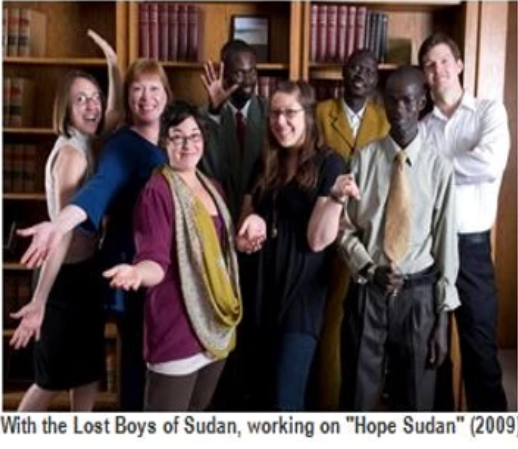“Roger & Me” The Night I Just Learned to Be Myself… by Tanya Touchstone

By Tanya Touchstone
Originally Appears In Tanya Touchstone, Author – short stories, articles, prose & poetry (wixsite.com)
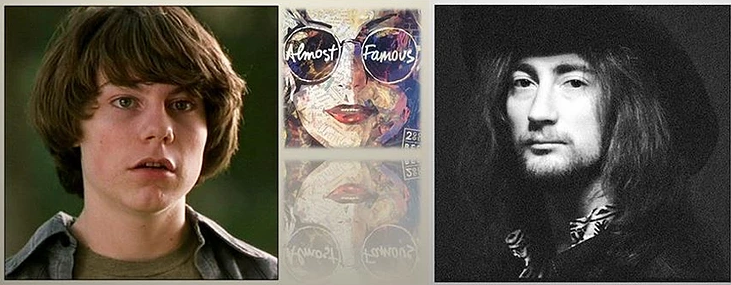
(L-R) Patrick Fugit (as a young Cameron Crowe in the film Almost Famous); Roger Glover (circa 1981)
“Almost Famous” is one of my favorite films, and every time I watch it, I am immediately transported to a time in the early 80’s when I was working to break down barriers. The ever-present dazed (and, yes, confused) expression on William Miller’s face (portrayed beautifully by Patrick Fugit, who was playing a young Cameron Crowe), is exactly the way I felt (and probably looked) most of the time during that phase of my life. I could entirely relate to William’s thoughts, feelings, and experiences, only I had one additional detail to deal with – I was a woman attempting to work in what was then strictly a man’s world, the business end of the music industry.
Yes, it could be a lot of fun working in the music business, but it was not easy and I had to work very hard at not only the right kind of reputation, but I also had to know twice what every man around me knew. I had to prove myself as someone who should be taken seriously. I constantly had to prove I was not a “groupie,” that I was there to do business, and that I knew what I was talking about.
I hail from Southeast Texas, where extraordinary musicians abound. We are known for such artists as Johnny and Edgar Winter, Janis Joplin, George Jones, Tracy Byrd, ZZ Top, Clarence “Gatemouth” Brown, Clay Walker, Marcia Ball, Mark Chesnutt, Tex Ritter, and countless others. There’s definitely something in the water there. Accordingly, I was always surrounded by superb musicians.
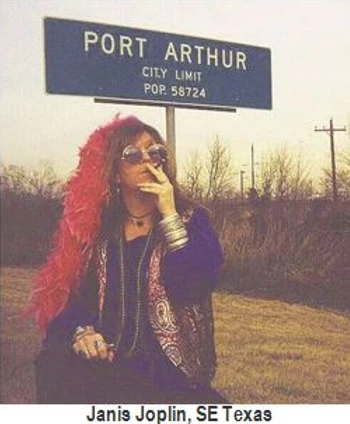
In junior high school I was the first girl to have her own band. That band included the son of a man who played in Edgar Winter’s White Trash band, and who taught me at a very early age the correct way to set up a stage for the best overall sound when you didn’t have a sound technician. That ‘first’ set off a series of ‘firsts,’ as I was raised to be a feminist by an evolved mother in an area that was not big on being evolved. I always strove to be the first girl, and then woman, to do … everything.
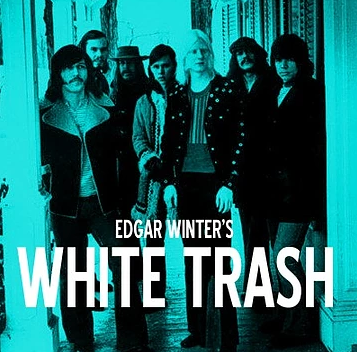
In Junior High your identity as a young girl was defined by which Beatle you claimed to want to marry. But we didn’t want to marry any of the Beatles –we wanted to be the Beatles.” –Nancy Wilson, Heart
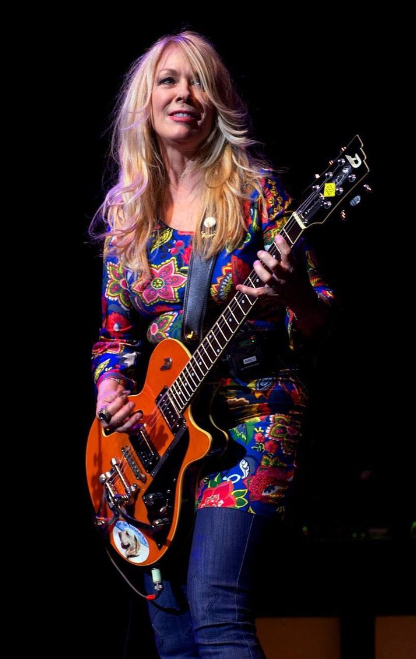
When I was halfway through college, I took every class available, trying to piece together the framework needed to pursue my dream of being a woman in the business end of the music industry. Accordingly, I had many majors. I first majored in Music, then Marketing, Public Relations, and finally in Communication. The problem, though, was that they didn’t offer a dedicated Music Business Degree in the early 80s. That just didn’t exist as it does today, so with my get-going-in-life clock ticking loudly, I summoned all my courage and made an appointment with the head of the Communication Department. I prepared feverishly for this meeting and even rehearsed aloud what I would say. When the day of the appointment finally arrived, I was ready.
Always very good at pitches, I could usually talk my way into just about anything. I was already well into working my way through the business of selling rock and roll bands to clubs, promoters, and radio. I became the gal who was known to say: “If I like you, everyone has to like you!” And, I meant it. I was very choosy about who I worked with, and so those who worked with me knew they were getting a good product. With this skill-set in hand, I made my pitch to the department head to create a Music Business Degree … or something like it –just for me.
As I spoke, Dr. Holland listened gently and intently. He actually liked that I was thinking outside the box. People meeting Dr. Holland for the first time would see his red bow tie, gray flannel suit, starched white shirt, and spectacles, and immediately conclude he was a very conservative and not too forward thinking man. They would be wrong. No one was more open than he, and he was the perfect person to receive this pitch.
I watched as his eyes widened and then narrowed as I spoke, sure signs he was open to the possibilities, and then I saw him look down in a considered way, pursing his lips as he thought. I’d seen him do this many times before, and so it was at that moment I knew he was seriously considering and moving thoughts around in his mind as to ways to do something about this. I seized the moment and dove in to close the deal. I told him that another student, Steve, was having the same issue. Steve and I had all kinds of courses taken and passed, but we didn’t have any degree plan to place them under. A year or maybe two ahead of me, Steve needed to get out so he could begin. (Me, too!) Dr. Holland knew Steve very well, and liked him. Steve would eventually go on to do great things as a top executive in the music industry, and would also one day soon be my boss for a short period of time.
Ultimately, he became a wig that was very big in the Nashville music scene. I summarized by saying: “Who knows how many are out there who would not only pursue such a degree, but who would register at this very university, just because this unique degree is offered? You would be the one who made it happen!“
There was a silence in the room as I held my breath, waiting for him to speak. Finally he said that while he could not offer me a bona fide Music Business Degree, he could do something else. The Multi-Emphasis Communication Degree was born.
1982
The past couple of months had been very busy and, honestly, very frustrating. I was in my last year of college, working with a newly acquired rock act in Beaumont, Texas, and also traveling back and forth from Houston on weekends working as an intern in a music industry office that was Steve’s very first company. The band I was managing was very good. Exceptional, really. They had original music that was radio worthy, and their stage presence and delivery were excellent. They also had a following. All great. Only problem was, I was trying to work a hard rock act at a time when Urban Cowboy had entered the cultural scene, and everything was … Country. I was fortunate that my male friend and college classmate, Guy, was a fellow booking agent and working with me on this problem.
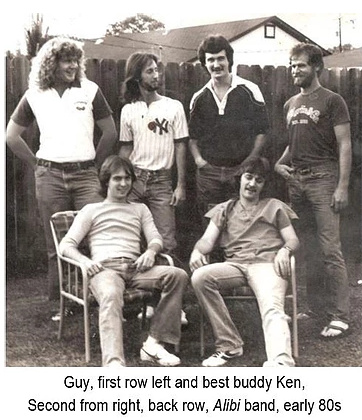
Guy was very talented, very smart, and really funny. He was only about 20 years old, but he was a big picture guy, and had the idea that he couldn’t book rock bands successfully all on his own – he felt there had to be a wave of rock bands being booked that could succeed in this Country climate, so he included me in this effort. I was glad to work with him because he had a great reputation, was very well connected, and he thought nothing of me being a woman working in the same job he was doing. He had even helped me out with leads when I was first getting started.
Nevertheless, it was all very demanding and somewhat nerve wracking. In addition, I’d quite literally had some fingers in my face that week from not so well meaning men who didn’t like me being there – anywhere – around what they deemed their turf. One had physically threatened me just for being present, and another scoffed at promotional ideas I’d had –mostly because he hadn’t thought of the ideas himself! I had become accustomed to these things, but it didn’t make me feel very good –at all. If you want to feel inadequate, be sure to go into this business.
These were just some of the things I was dealing with when my girlfriend asked me to join her on a Saturday night to hear a guy she dated occasionally, Joe Lizama, who was in town playing with the house band at a popular local club. Joe was not only an exceptional percussionist, he was also an extremely nice guy, so I could not refuse. (Joe later went on to play drums for Johnny Mathis for many years, and may still.)
Given the week that I’d had, I did not feel like going out, at all, but I had promised and so I dragged myself to the Club, deep in thought and wrapped in my worries. I knew my friend would be occupied with Joe all evening, so it was going to be a night of mostly sitting alone and, given my state of mind, this was entirely OK with me. I was used to going and listening to bands – scouting, getting ideas – no problem. There was always something to learn and always people to meet. I decided to meet her there so that I could arrive late.
I walked into the Club at about 10 pm, and it was very busy. The band was very good and so the house was full. I noticed to my right a long table of men I’d never seen there before and knew from looking at them that they were musicians (because you can just tell). I grabbed a table that had been saved for me and sat and listened, deep in my thoughts.
I knew all the waitresses at the Club, and so when one approached me, I thought she was coming to say hello.
Much to my surprise, she let me know that the long table of men who appeared to be musicians would like me to join them for a drink. I looked over at them and they started cat calling. I asked her to tell them thank you, but no. I continued listening to Joe and the band on stage, and went back to my thoughts.
Here comes the waitress again, grimacing and rolling her eyes toward the ceiling. She had been asked by the men to issue a second invitation, only this time they were offering champagne. I looked over, more cat calling, and a second polite declination from me. Once again, I became lost in my thoughts and was listening to Joe and the band when, you guessed it – here she comes yet again, shaking her head and apologizing.
This time they ask if I would join them not only for champagne, but Dom Pérignon. With Dom Pérignon going for about $100 per bottle at that time, I looked over again and wondered, “Who are these guys?”
There are times in life when the Universe seems to propel you toward certain people, places and events, and you often don’t know why. I had already learned that when you trust and go where this unseen force seems to lead you, the most amazing things can happen. Even though it made no logical sense to me at the time, I was feeling such an urging, and so, reluctantly, and based only on that urging, I finally accepted this third invitation and found myself involuntarily rising and walking across the room, toward the circus.
“Once in a while you get shown the light In the strangest of places, if you look at it right.” –Jerry Garcia, “Scarlet Begonias”
So there I was, walking across the room toward them, just knowing that I had made a huge mistake; however, the propulsion from unknown forces was at full force. I told myself that if it were too bad, I would simply have one glass, excuse myself, and then leave. Upon arriving at their table, I somewhat reluctantly sat in the chair held for me, and the promised glass of Dom Pérignon was promptly poured from one of the three bottles sitting on the table and placed in my hand.
As I sipped the champagne, I surveyed the situation. It’s difficult to accurately describe the circus-like atmosphere in which I found myself, but it was, and here I was in the center ring. Of course, I had already observed this from across the room, but being in the center of it was something else entirely.
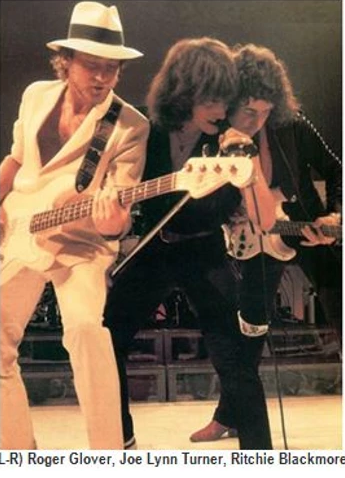
Three of the men in business suits sitting next to me were extremely drunk and very happy. Another man was crawling around on the floor ‘feeling the carpet,’ an activity that makes perfect sense after you’ve dropped acid. When he finally looked up from the floor, I saw it was Ritchie Blackmore of Deep Purple – who I had not been able to see from my point of view at the other table (plus, he was on the floor). I couldn’t help but think of the lead guitarist in the band I was currently working with. He idolized Ritchie Blackmore, and so I knew he’d be right down there on the floor with him, acid or no acid, and as long as the carpet held up to such careful scrutiny.
As I continued looking around the table, I quietly began planning my exit. Just at that moment, I felt something –the feeling you get when you know someone is looking at you. I turned to look and my eyes fell on a man at the end of the table, off to the side, who was peering at me quietly and intently. He was wearing a black biker cap and had a neatly manicured mustache and beard. His hair was shoulder length, and he had an entirely amused half-smile on his face. He was sitting at an angle and position such that he had been able to observe the entire scene as it had played out, act by act. With a nod of his head and the pull of a chair, he motioned me over by him. I quickly accepted the lifeline and made the move next to him.
Smoke on the Water

I was now sitting with a very amused Roger Glover, the bass player for Deep Purple, and a very kind and polite Joe Lynn Turner, the lead singer for Rainbow. A few moments after I sat down, Roger was summoned for a phone call and excused himself, saying he would be right back. I turned toward Joe Lynn Turner, who engaged me in conversation. He then turned to listen to the band, and it caught me off guard when hard rocking Joe Lynn Turner started singing along to a Dionne Warwick song the house band was playing. Should I have been surprised he sounded great singing, “Why do you have to be a heartbreaker / When I was bein’ what you want me to be …?” It was such an odd, unexpected, and charming moment that I couldn’t help but smile. That moment was interrupted by some commotion at the other end of the table, and I turned to see the drunken men still going at it.
Because of my work, I made it my business to know who was who in the industry. I was pretty hard to beat at music trivia in those days because I read every industry magazine out there, cover to cover, so that I was always on top of everything technical as well as business related. Accordingly, I was surprised I did not initially recognize the three men who had originally invited me over. Roger had told me who they were when I first sat down with him, and I recognized their names immediately; they were some of the most successful men in the music industry, promoters and such. Because of their drunken demeanor, they were beyond recognition (names respectfully withheld). Rock stars can get away with such behavior in public, but I believed you needed to know your limit. They had definitely passed said limit earlier in the evening.
Roger returned from his phone call and I turned my attention back to him and his lovely Welsh accent. I found him to be extremely easy to talk with, and he was a great listener. He was genuinely interested that I was working in the music industry, and even more interested in what I had to say, and he asked me a lot of questions about my experiences. It was very uncharacteristic of me to tell so much about myself to a complete stranger, especially the problems and experiences I was having, but he encouraged me, saying, “I’m always talking about myself in interviews. I know all I need to know about me. It’s refreshing and a pleasure to hear about someone else.” He was so engaging, kind, and encouraging that I quite literally spilled it. I remember mentioning to him early on that the first song my own band learned to play was “Smoke on the Water.” With the half-smile emerging, he replied, “Well, already we have so much in common.“
The Student is Ready; The Teacher Appears
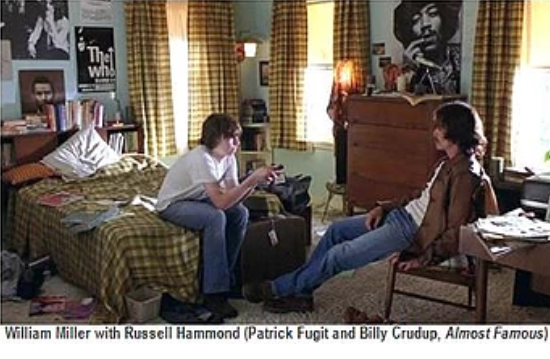
NOTE TO READER: What follows are highlights of the comments and advice I remember Roger Glover sharing with me. I have fleshed out some of the sections based on interviews he gave pertaining to the same subject matter for ease of reading, but the majority comes from my memory and notes taken at the time. Accordingly, quotation marks are omitted.
Some of the ideas you have won’t work, and I know that because I’ve been doing this a long time, but that doesn’t mean they aren’t good ideas. I, of course, asked which ideas wouldn’t work.
That’s what you have to learn. Remember, anything worth doing has some degree of difficulty to it, otherwise, why do it? Every time you fail with an idea, you learn from it. You will learn how to let your ideas evolve from that failure. Even though I’ve been in this business for years, I still fail, all the time, but every time I fail, something better comes from it, so failure is important. How do you succeed? How do you get around the roadblocks?
Success is nothing to be avoided. It’s all the better if it’s done on your own terms, but you’ve already figured out that’s not always going to work. As just one example, I was a great Bob Dylan fan and I couldn’t figure out why he was so good –because I thought everything he did was good. Even when he was breathing I thought he was great … but I could never be a Bob Dylan because I was trying and he wasn’t. He was just being himself. Whatever comes out naturally, whatever that is, that’s the shape of it. You always have to have that attitude.
I’ve already told you I think you have some really good and original ideas. The music industry doesn’t always like creativity. They like formulas. You just have to put the ones that don’t work in a file somewhere, because I predict you will use them later in life, in an entirely different area. In my short time talking with you, you seem to me to have the nature of a philanthropist, and I predict you will use some of these ideas in another area entirely, so don’t close the door on any of it. I understand; I just get so frustrated.
You are frustrated because you are trying to be who you think you should be within a certain framework instead of just who you are. I’m familiar with that. I remember being that way. One thing to remember is that everyone is scared, everyone feels inadequate, threatened – it just comes out in different ways.
You’re also frustrated because you’re thinking outside the box and at the same time trying to fit in a box. The music industry is a series of boxes; you don’t want the box. There’s the contradiction. Does this mean you shouldn’t think outside the box? I don’t think so, but you have to learn how to be flexible, and most of all you need to learn how to be wrong. Get comfortable with being wrong. I mean, I could be wrong about some of the things I’m telling you now –maybe you’ll try something and it actually will work, or maybe you’ll get a better idea after something fails that I would have never thought of. You always have to be about the business of reassessing your ideas and your goals. You always have to ask these questions of yourself.
There were moments where I had to stop and let what he was telling me really sink in, and so there were long moments of silence, and then those ‘Aha’ moments kick in, where everything suddenly starts to click, and then more questions come. I was pretty much a sponge that night as he told me story after story and giving examples from his own life and work that I could build on and use in my own work.
As the conversation progressed, and although he had already touched on it earlier, he drove home one of the most important lessons of the evening.
On Being Yourself
One of the lessons you learn as you get older is how to be yourself. It’s the hardest thing to be … it’s a process of letting stimulus take you wherever it takes you … then you start realizing that you can start borrowing ideas from here and there and everywhere and somehow put it in the mixer that is your brain and come out with something that is original for you, or a slightly different view of it and … I mean nothing is original … but that’s an important key to your own progression … the only thing to do is follow your own conscience and your own instinct, and then, you have to let that be OK.
In the end, you just have to be yourself, and that’s the best thing to learn to be.
As I took all this in, I realized it had become quiet in the Club. When I finally looked up, I saw that we were the only ones still sitting there and that a cleaning crew had entered.
“What time is it?” I asked. Dawn. It was dawn.
This man had sat up all night talking with me, offering advice, and encouraging me. I couldn’t believe it. I apologized that I had lost track of time, but he responded, “Not at all – I enjoyed the conversation. I hope it helped.”
As we stood up to leave, I knew that he had a two-hour drive to Houston ahead of him, was going on no sleep, and then a recording session that would likely last all day into another early morning. I felt terrible and grateful, all at once.
He leaned toward me, gave me a kiss on the cheek and said, “Good luck. I really mean that. You can do it. If anyone gives you any guff about your ideas, tell them I said they’re great.” Then, with a chuckle, “But, always bear in mind that a lot of people don’t care what I think –about anything.”
The now familiar half-smile, and he was gone, just as quickly as he had appeared.
A Fire in the Sky
I walked out of the Club, brushing past cleaning people and stepping over mop buckets, opened the door, and stepped out into the early morning, marveling at all that had occurred. As I was driving home, I silently envisioned raising an imaginary glass and offered one last toast: “Here’s to you, Roger, and to this night in Beaumont, Texas, when you taught me how to just be myself.”
Once again I was filled with hope and inspiration. Hopelessness was gone. As I looked off in the distance, just over the horizon, I saw a fire in the sky. At that moment, an old Dan Fogelberg lyric set came to mind:
“Along the road
Your steps may stumble
A pilgrim’s faith may fail
But through it all
A heart held humble
Levels and lights your way.”
–Dan Fogelberg
Roger Glover – Love is all [Interview TOPPOP 1980]
Afterword: I did go on, and I did have some small successes, mostly due to Roger Glover’s advice. Every time I felt discouraged, I thought of Roger — his belief in someone he didn’t know. It bolstered me, every single time. He was, and I’m sure still is, a very humble man. That night he taught me by example to always be encouraging, to listen, and I have tried to pay that forward in the years since that event. I did put those failed ideas in the file he suggested, and have some sitting in a file right now. Through this exercise I realized that sometimes you plant seeds, and then you wait to see if they will germinate and grow. Pruning is necessary. Some never grow, because the timing is not right. Timing is everything. I had the courage to walk away from the music industry in 1985, without feeling like a failure. He had opened a door to show me there were other possibilities. As he was so insightful to predict, I did go on to use some of those ideas in my philanthropy projects –in the Native American community, in the meditation group that I later formed and facilitated, in The Lost Boys of Sudan project I was involved with, and in other areas. In 1998, I found myself once again working in the music industry, but in a different area entirely. Friends have urged me over the years to tell this story in detail. I hope you enjoy it, and I also hope this little story conveys the profundity of my experience with Roger Glover that night. It’s been one of the most difficult stories I’ve ever written, mostly because it changed my life. Always remember, and as Roger himself would tell you: In the end, you just have to be yourself, and that’s the best thing to learn to be.
–-Tanya Touchstone, 2017
